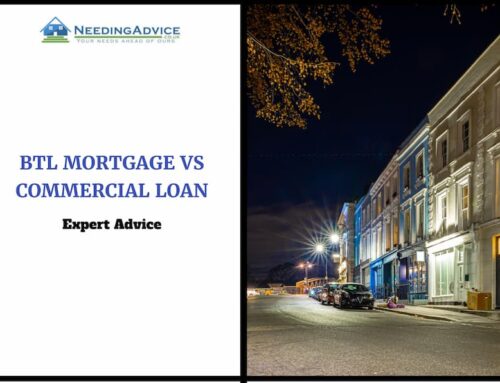Buying a House with Cash Process
Buying a house with cash can have several advantages, including a quicker process, fewer legal complications, and the potential for discounts on the purchase price. However, it is often more cost-effective to get a mortgage with a high deposit. This is because government mortgage schemes can offer significant savings in the long term. This means that you can save a significant amount of money on your deposit, which can be used to invest in other areas or to reduce your monthly mortgage payments.
Of course, there are some advantages to buying a house with cash. For example, you will not have to worry about monthly mortgage payments or the risk of your mortgage being declined. However, the financial benefits of getting a mortgage with a high deposit are often greater than the advantages of buying with cash.
What are the Advantages of Cash House Buyers?
The most significant advantage for cash house buyers is their attractive position in the property transaction. A cash buyer can often negotiate a discount on the sale price, especially if the seller is eager for a quick sale. Furthermore, cash deals eliminate the need for a mortgage application process, monthly mortgage repayments, mortgage lender, or mortgage broker, thus avoiding mortgage valuation, affordability checks, and potential financial difficulties. The entire process, from property search to completionThe point at which a property purchase is finalized and owne..., usually takes 2-3 weeks for cash buyers, as opposed to the 6-10 weeks (or even longer) it takes for a mortgage buyer.
As a cash buyer, you also avoid property chains – you’re not reliant on selling a property to finance the purchase. This independence makes you a more reliable buyer in the eyes of the seller and the estate agent, reducing the risk of the deal falling through.
Cash Buying Process
Proof of Funds
The first step as a cash buyer is to provide the estate agent or seller with proof of funds. This can take the form of a bank statement or a letter from your financial advisor confirming that you have the funds upfront to cover the purchase. Money laundering rules require this to ensure the funds are legitimate and you’re not involved in any criminal activity.
Conveyancing Process
After your offer is accepted, the conveyancing process begins. This is the legal transfer of property ownership from the seller to the buyer. You can either hire a licensed conveyancer or a conveyancing solicitor to handle this. They will conduct necessary legal checks, such as authority searches, a Regulated Drainage and Water Search, and council tax checks.
The seller will also provide a property information form, a contents form, and, if applicable, a leasehold information form. These forms provide information about the property, any disputes, and who is responsible for the maintenance of shared areas. If you’re buying a leasehold property, the terms of the lease will be scrutinised.
Property Surveys
A house survey, typically conducted by a property surveyor, will help identify any potential issues with the house, like structural issues. While optional, it’s recommended to get a house survey to avoid unpleasant surprises. A structural survey can highlight any major repair work that might cost thousands of dollars in the future.
Exchanging Contracts
Once the surveys are complete and both parties are happy, the exchange of contractsThe point at which the buyer and seller exchange signed cont... can take place. This is a legal requirement that signifies the buyer’s intent to purchase and the seller’s intent to sell the property. At this point, you’ll pay the earnest money – usually between 1% and 5% of the property price.
Completion
On the completion date, your conveyancer will transfer the funds to the seller’s solicitor, and the keys will be handed over. Congratulations, you’re now the legal owner of the house!
Considerations for Cash Buyers
While buying a house with cash would save you from making monthly repayments to a mortgage provider, there are other costs to consider, such as solicitor fees, valuation fees, survey costs, search fees, and Stamp DutyA tax paid by the buyer when purchasing a property. Land Tax (or Land & Buildings Transaction Tax in Scotland). Plus, owning a house means yearly costs like property taxes, insurance costs, and maintenance costs.
Buying a house with cash can also tie up a substantial chunk of your money, which could otherwise be invested for potential returns. Financial advice is crucial here to understand your financial position and personal circumstances and the implications of tying up cash in property.
One common misconception is that cash buyers can’t lose their house. While it’s true that you won’t face foreclosure if you can’t make monthly mortgage payments, you could still potentially lose your house if you fail to pay property taxes or homeowner’s insurance.
Buying a house with cash may also have tax implications. In some cases, buying a house with cash can affect your taxes, especially if you plan to rent out the property and earn market rent. It’s recommended to consult with a financial adviser or tax expert to understand these implications.
Wrapping Up
Buying a house with cash can make you an attractive buyer in a competitive market, as it offers a quicker sale for sellers and can eliminate a downward or onward chain. The process is also more straightforward and can be faster than the traditional sale involving a mortgage. However, it’s essential to consider all factors, including the potential for investment, the costs involved, and the tax implications. Always seek guidance from a financial advisor or an experienced adviser to ensure you make an informed decision that aligns with your exact requirements and circumstances.
FAQs
What are the advantages of buying a house with cash in the UK?
- Quicker process: The buying process is typically faster when you buy with cash, as there is no need to wait for a mortgage to be approved.
- Fewer legal complications: There are fewer legal complications involved in buying with cash, as there is no need to provide financial information to a mortgage lender.
- Potential discounts on the purchase price: Some sellers may be willing to offer a discount on the purchase price if you are paying cash.
- No need for annual mortgage payments: Once you have bought the property, you will not have to worry about making annual mortgage payments.
What are the disadvantages of buying a house with cash in the UK?
- You may not be able to get the best mortgage deal: If you have a large deposit, you may be able to get a better mortgage deal if you get a mortgage rather than paying cash.
- You may miss out on government mortgage schemes: There are a number of government mortgage schemes that can help you to buy a home, but you may not be eligible for these schemes if you are paying cash.
- You may have to pay more stamp duty: If you buy a property with cash, you may have to pay more stamp duty than if you get a mortgage.
What is the process of buying a house with cash in the UK?
The process of buying a house with cash in the UK is similar to the process of buying a house with a mortgage. However, there are a few key differences:
- You will not need to apply for a mortgage.
- You will need to provide evidence that you have the cash available to buy the property.
- You may need to pay more stamp duty.
The overall process of buying a house with cash can be completed in as little as 6-8 weeks.
Is it a good idea to buy a house with cash in the UK?
Whether or not it is a good idea to buy a house with cash in the UK depends on your individual circumstances. If you have the cash available and you are not eligible for government mortgage schemes, then buying with cash may be a good option for you. However, if you are able to get a good mortgage deal, then you may be better off getting a mortgage rather than paying cash.
What are some of the things to consider when buying a house with cash in the UK?
- The cost of the property: Make sure that you have enough cash available to cover the purchase price of the property.
- The cost of stamp duty: You may need to pay more stamp duty if you buy a property with cash.
- The cost of legal fees: You will need to pay legal fees when buying a property, regardless of whether you pay with cash or a mortgage.
- The cost of other expenses: There are a number of other expenses associated with buying a property, such as survey fees and conveyancing fees.
Where can I find more information about buying a house with cash in the UK?
There are a number of resources available to help you learn more about buying a house with cash in the UK. These include:
- The government’s website: The government’s website has a wealth of information on buying a house, including information on buying with cash.
- The Council of Mortgage Lenders’ website: The Council of Mortgage Lenders‘ website has information on mortgages and buying a home.
- The Money Advice Service’s website: The Money Advice Service’s website has information on financial planning and buying a home







Leave A Comment